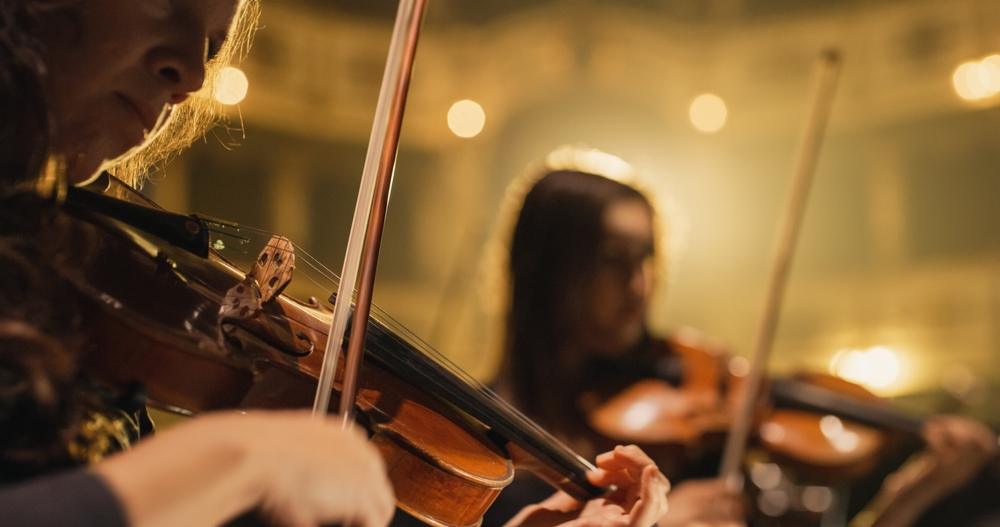
Music, in its endless diversity, offers a world of possibilities. At its core, music is a journey of self-expression and discovery, and choosing the right genre can significantly shape this journey. The debate between classical and modern music is a fascinating one, each genre offering unique experiences and benefits. As we delve into “classic vs modern music,” we’ll uncover the unique experiences and benefits each style offers, helping you make an informed decision in your musical education.
Understanding Classical Music – A Timeless Journey
Classical music, with its roots in the traditions of Western art music, dates back centuries. It encompasses a vast range of styles from the elegant Baroque period to the passionate Romantic era. But what sets classical music apart? Its key characteristics include complex compositions, a strong emphasis on melody and harmony, and often, a grand, orchestral presentation. The beauty of classical music lies in its structured precision and the emotional depth it conveys.
Why learn classical music? It’s more than just learning an art form; it’s about building a strong musical foundation. Classical training hones skills like reading music, understanding musical theory, and developing disciplined practice habits. It’s a timeless journey that enriches one’s musical understanding and appreciation.
Exploring Modern Music – A Contemporary Twist
Now, let’s groove to the beat of modern music. This genre is an umbrella term that covers a wide array of styles developed in the late 20th and 21st centuries, including pop, rock, jazz, and electronic. Modern music is marked by its innovation, diverse influences, and often, a focus on cultural and social themes. Its appeal lies in its ability to evolve and mirror the trends and sentiments of the current generation.
The charm of modern music is in its diversity and relatability. Learning modern music can be a thrilling venture, allowing students to experiment with different sounds, technologies, and styles. It’s about expressing individuality and connecting with contemporary audiences.
Comparing Classic vs Modern Music – What Suits You Best?
The choice between classical and modern music is a significant one for aspiring musicians, involving careful consideration of personal preferences, learning goals, and desired musical experiences. This decision not only influences your current musical training but also shapes your future in the music industry.
Learning Curve and Techniques:
Classical Music: Known for its structured approach, classical music demands a strong foundation in music theory, sight-reading, and mastery of intricate techniques. The repertoire includes diverse forms such as sonatas, symphonies, and concertos, requiring dedicated practice to master.
Modern Music: Modern genres are often more flexible in terms of technique and theory. They tend to emphasize learning by ear, improvisation, and experimenting with various styles. This genre is ideal for those who enjoy a more free-form approach to music-making.
Influence on Creativity and Technique:
Classical Music: It instills a deep understanding of musical elements and fosters a high level of discipline. This rigorous training enables musicians to develop a refined technique and a nuanced understanding of musical expressions.
Modern Music: Offers more space for personal expression and innovation. It encourages musicians to experiment with new sounds, blend genres, and express contemporary themes, fostering a unique artistic voice.
Career Opportunities:
Classical Music: Offers paths in orchestral playing, chamber music, solo performances, and teaching. Classical musicians often pursue careers in symphony orchestras, opera houses, and music conservatories. There’s also a demand for classical musicians in recording studios for film scores and collaborative projects.
Modern Music: Opens diverse avenues such as songwriting, music production, band performances, and music therapy. Modern musicians often find opportunities in recording studios, live concerts, and as session musicians. The evolving digital landscape also offers new platforms for exposure and income, such as online performances and social media channels.
Harmonizing Your Choice with the Right Guidance
Choosing between classical and modern music is a deeply personal decision that should align with your aspirations, interests, and the type of musical legacy you aspire to. Whether you seek the disciplined elegance of classical training or the dynamic, creative freedom of modern music, both paths offer rich, fulfilling experiences and valuable skills.
At Lessons in Your Home, we recognize the unique musical journey of each student. Our dedicated teachers are here to guide your child, whether they are drawn to the profound depths of classical melodies or the vibrant, expressive rhythms of modern tunes. Connect with us to find the perfect music teacher who can tailor their approach to your child’s preferences and goals, ensuring a fulfilling and enriching musical experience.
